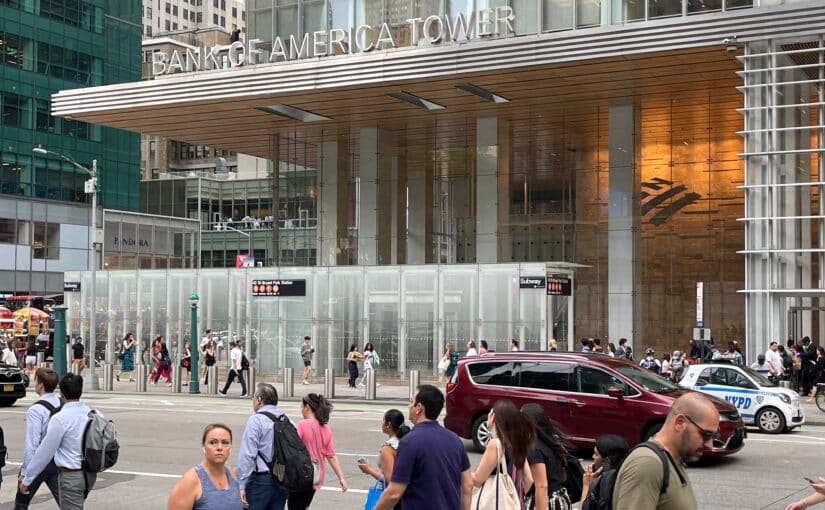by Barbara Nevins Taylor
Shopping for a mortgage is confusing. There’s strange language, complex details and interest rates that vary widely. “You need to know which banks will give you the lowest rates. Banks are competing for your business, let them do that,” advises Adam Leitman Bailey attorney and author of Finding The Uncommon Deal.
COMPARISON SHOP
Comparison shop. Check out the banks in your area and also look online to find out what rates are offered.
MORTGAGE BROKERS
Mortgage brokers can help cut through the confusion. A mortgage broker doesn’t lend money, but generally has good contacts at banks and knows the banks that offer competitive interest rates and the lowest fees.
ASK QUESTIONS
Put aside any fear you may have and ask a lot of questions. “There are no stupid questions when you go for a mortgage,” says Kenneth Totten, Vice President and Chief Lending Officer of Metuchen Savings Bank in New Jersey.
Be direct and ask, “What’s the best interest rate that I can get?” The answer will depend upon your credit score. The bank will check your credit score after you apply for a mortgage. ConsumerMojo.com’s video What’s the First Step to Get a Mortgage explains how your credit score affects the interest rate.
WHAT TYPE OF MORTGAGE DO YOU WANT
The banker will also ask you questions about the type of mortgage that you want.
Mike Copley, Executive Vice President of TD Bank, says a banker will typically ask, “Do you want a 30-year fixed-rate mortgage? Do you want a 15-year fixed- rate mortgage, or do you want an adjustable-rate mortgage?” The answer depends upon your age, your plans for the future and the home that you hope to buy.
15-YEAR, 20-YEAR MORTGAGE OR 30-YEAR MORTGAGE
You can select a 15-year fixed-rate mortgage or a 30-year fixed-rate mortgage. TD Bank’s Copley explains, “The difference between those two mortgages is the life of the loan interest you will pay.”
If you plan to live there for the rest of your life, then a 30-year mortgage may be better than a 15-year or 20-year mortgage. But both the 15 and 20-year offer lower monthly and overall interest.
A 15-year mortgage you are typically going to get anyplace between three quarters and a half a point less interest rate,” says Metuchen’s Totten. And a 20-year-fixed rate mortgage offers a slightly higher interest rate than a 15-year, but less than a 30-year mortgage.
To make the right decision, you have to analyze your needs. Totten says, “How much can you afford to pay? Where are you going in the future? If you are 48- years-old and you are looking to retire when you are 63, you probably don’t want to have a mortgage then. So you take the 15-year route,” he suggests.
FIXED RATE MORTGAGE
Most people choose a 30-year fixed-rate mortgage for a good reason. “A fixed- rate mortgage is a mortgage that you take the loan out and from day one to the day you pay if off, it is going to be fixed,” says Metuchen Savings Bank’s Totten. It offers security. “The consumer doesn’t really take much risk in a 30-year fixed- rate mortgage. The bank takes all the risk because it’s a long time,” says TD Bank’s Copley.
ADJUSTABLE RATE MORTGAGES
An adjustable-rate mortgage or ARM is riskier because the rate can go up and up. “An adjustable-rate mortgage is a fixed-rate on the initial term and that can be from one to three, to five, seven or ten years. Thereafter the interest rate will usually adjust annually and sometimes monthly,” says Metuchen’s Totten. So an ARM is a gamble.
You’re betting that the interest rate won’t go up faster than the value of your house. And that’s why Adam Leitman Bailey isn’t a fan of adjustable-rate mortgages. “Do not get an adjustable-rate mortgage period. Unless you are an expert in real estate or a trader on the stock market, don’t get one,” he insists.
Yet gambling works for some.
WHEN AN ADJUSTABLE RATE WORKS FOR YOU
“If you are young and just starting out and you expect your income is going to increase and you are not going to be in this home for a long time, you may want to consider an adjustable-rate mortgage,” says Melissa Cohn of Manhattan Mortgage.
TEASER RATES
There’s also another benefit. Banks offer teaser rates to get your business and to make an adjustable-rate mortgage attractive. Financial advisor Lewis Altfest says, “A teaser rate can be a good rate if you are going to leave your home in a relatively short period of time.”
In other words, the gamble pays off if you sell your home before the rate goes up significantly. Still, Leitman Bailey is skeptical. “Don’t gamble,” he advises.
GOOD FAITH ESTIMATE
Once you assess your needs and make a preliminary decision, the bank will give you a Good Faith Estimate with a rate quote. The Good Faith Estimate, will give you a clear picture of what the mortgage will cost over the long-term and what the fees will be right off the bat. When you have a Good Faith Estimate from one bank you can go shopping from bank to bank.
CREDIT CHECK CAUTION
But Totten says, “I would caution you, tell the banker what your credit score is. Do not let them run your credit again. Every time you pull your credit it has the impact of lowering your credit score.”
ConsumerMojo.com’s video What’s the First Step to Get a Mortgage explains all about credit checks.
GET A FREE COPY OF ALL THIS GOOD STUFF. HERE’S YOUR LINK:


